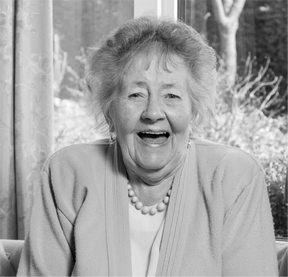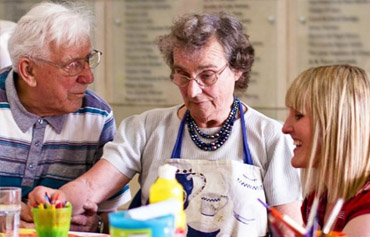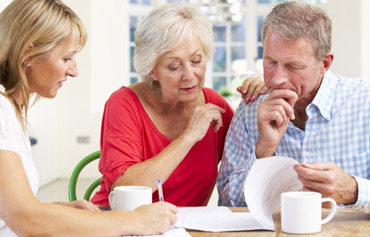What is Dementia?

The term Dementia is often misunderstood and considered a disease in itself. However, Dementia is a collection of symptoms that can be caused by various diseases. Dementia symptoms include impairments in thinking, communicating, and memory.
The leading cause of Dementia is Alzheimer’s disease. Dementia can also be caused by brain damage incurred from an injury or stroke, and from other diseases like Huntington’s or Lewy Bodies Dementia.
The Alzheimer’s Society has some produced some short films (below) explaining simply and clearly the different types of Dementia.
Your GP will explain to you in detail the type of Dementia you or your loved one has. This will help you to understand what is happening and how the condition may progress.
How to Spot the Signs of Dementia
If you feel concerned that you or a loved one is beginning to have some memory difficulties, it is important that you speak to your GP. Book an appointment and explain to the GP your concerns.
Here are some signs that you (or your loved one) may be experiencing. If so, then it’s best to discuss this with your GP so that you get the support you need early.
Do you…
- struggle to remember recent events, although you can easily recall things that happened in the past?
- find it hard to follow conversations or programmes on TV?
- forget the names of friends or everyday objects?
- cannot recall things you have heard, seen or read?
- lose the thread of what you are saying?
- have problems thinking and reasoning?
- feel anxious, depressed or angry?
- feel confused even when in a familiar environment or get lost on familiar journeys?
- find that other people start to notice or comment on your memory loss?
Getting A Diagnosis
If your GP suspects that you may have early on-set Dementia, he or she will carry out an assessment and then refer you to the Memory Clinic for further tests and diagnosis.
You or your loved one will be fully supported at every step. Please click on the link below to find out more about the diagnosis process.

Dementia-Friendly
Activities
The best activities for someone living with Dementia are any activities that they love doing.
It could be an activity or hobby they have always enjoyed or something new that they might like to try.
Do you or your loved one enjoy flowers and gardens, or perhaps singing or dancing? These types of activities can really help stimulate the mind and promote wellbeing.
We have put together some ideas and links to help you to find and take part in local activities – click the button below to find out more.

Staying Safe at Home
Local Services
People living with Dementia can live happily in their homes, as long as safety measures are in place.
As Dementia progresses, a person’s abilities may change. But with sound expert advice and problem solving, you can adapt the home environment to support these changes.
Click on the button below for more information we’ve compiled about home safety. Please get in touch if you need more information.

Power of Attorney & Advanced Decisions
When there has been a diagnosis of Dementia, it can cause concerns for what the future might hold.
Often individuals are concerned for their family members and want to help reduce the worry by putting in place agreed plans for the future.
These might include nominating a Power of Attorney to a trusted family member to make decisions on their behalf when they can no longer make a decision for themselves.
Click the button to find out more information
